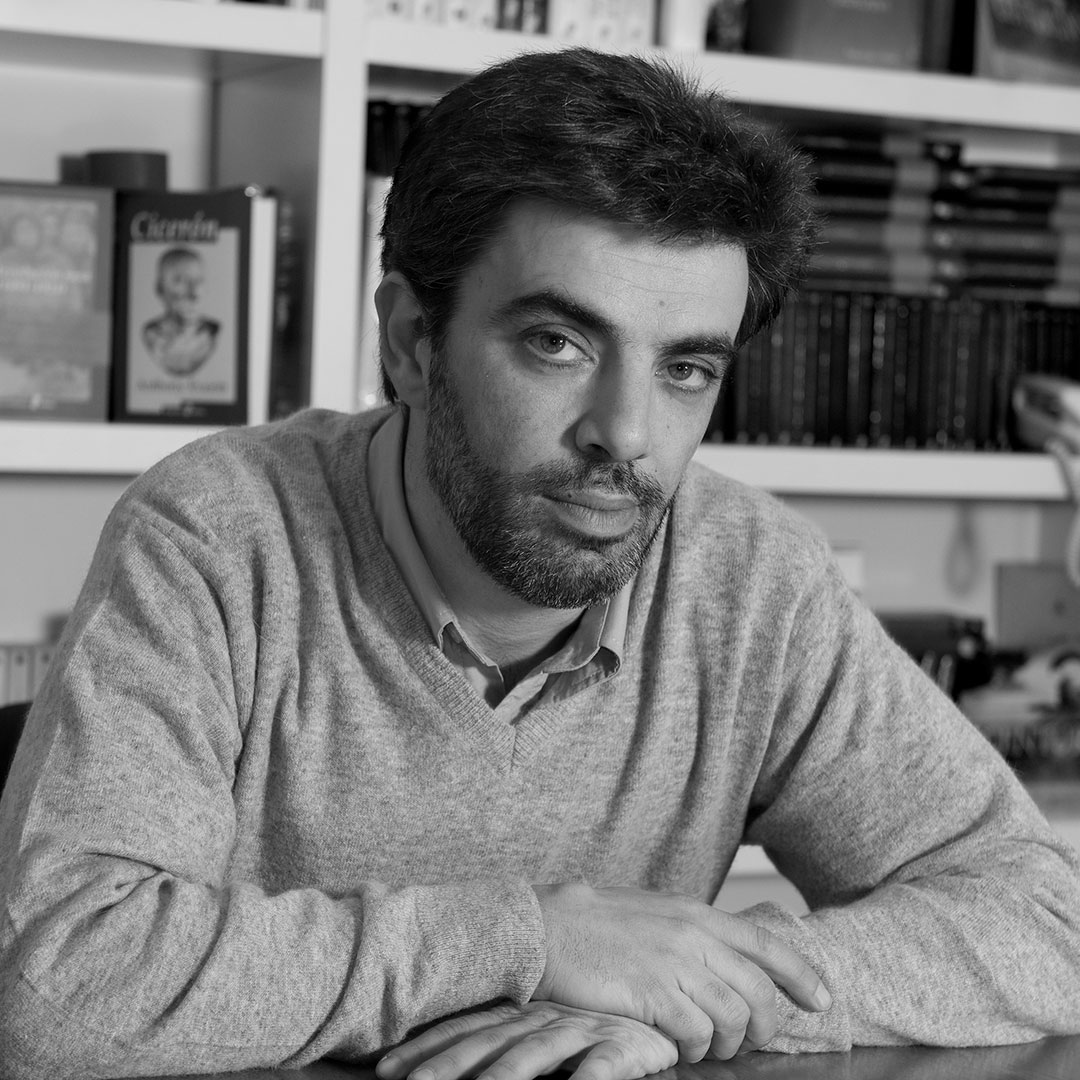Project Description
Residencia permanenteFernando Fagnani
Argentina
Fernando Fagnani was born in Buenos Aires in 1965. He is a literary critic and editor. He has worked as a cultural journalist for several newspapers in Argentina. He is the author of the book MAR DEL PLATA: THE MOST-LOVED CITY, published by Editorial Sudamericana in 2002. He was manager and editor of literature and essays at Grupo Editorial Norma between 1995 and 2000, and editor at Random House Mondadori between 2001 and 2003. Since 2004 he has been general manager of Edhasa Argentina. PERMANENT RESIDENCE is his first work of fiction and he is currently writing two other novels.
 © Fernando Fagnani
© Fernando Fagnani//
Magnetic Window
Following a devastating health diagnosis, a man who is a reader, husband, father and son must become a witness and testimony to his own story. In this task, finding the right words becomes essential. There is no longer any room for misunderstanding in this emotional and literary cartography composed of fragments. Every detail counts, promising either disaster or salvation. Faced with chaos, he searches for signs, invents plans and longs for refuge. But where can he find shelter?
Perhaps he will find it in a verse by Paul Celan, one of those that tear at the soul, or in the furious invective against a book by Susan Sontag on illness. Or perhaps in a brief encounter in Buenos Aires that, by mysterious chance, holds the mythical power of a past that can rewrite the present. Or even in an old hotel on Lezica Street, where orphanhood and words can finally regain their breath and restraint.
A personal, sober and moving journey, Magnetic Window (“Ventana magnética”) captivates with its erudite intelligence and deep sensitivity. Fernando Fagnani invites us to share in an intimate discourse where fate, affection and the unexpected take on the most human of dimensions.
//
Permanent Residence
Humans plan and destiny decides. In Permanent Residence (“Residencia permanente”) the protagonist must react to an external event that he does not control, and which will change the course of his life forever.
Benítez has travelled to a Central American capital for business and at the same time revisit an old lover, of whom he has not had news for a long time and with whom, without knowing it, he has a son. His visit, however, coincides with a popular revolt. Suddenly, a peaceful place becomes a dangerous territory. He calls his client in Buenos Aires and asks to be rescued. The client complies and puts him up in the Argentinean Embassy. He observes the uprising spread from behind the curtains, the chances of escape seem minimal. But Yolanda, an Embassy employee, gives him the key that can get him out, warning him that he will have to put in a lot of effort. The route passes through a forest, in the centre of which he will find a gypsy community and a certain Baidur, the leader of the group, who will be able to help him. Benítez has no choice but to leave and rely on the help of this man and his people. The tranquillity of the forest contrasts with the noisy streets, the friendly atmosphere of the gypsies with the hostility of the city. The community is a small, alien universe; they have their own rhythm, their own rules. Benítez is welcomed and given directions to the neighbourhood where his lover, Rebecca, is supposed to live. When he finds her in her ransacked house, she is dead: she has been one of the chance victims of street violence. He also finds a helpless child – his own son, of whose existence he was unaware. Benítez decides to hand his son over to the gypsies to take care of him while he plans what to do next. He feels a wave of parental emotion for the child before saying goodbye. He promises to come back for him. But his plans do not take account of a final attack that finds him unprepared.
Written in dry, precise and elegant prose, Permanent Residence tells the story of a man who has decided to close the wounds of the past. He has, however, chosen the worst moment to do so. Despite references to some very specific events, the story seems timeless. It has an atmosphere of ease and suspense at the same time. It has a light and silent tone that dominates the rhythm of the narrative. Benítez is not a winner, and in the end he pays with his life. But he is a hero in the sense that with his firmness of character and his skills, he overcomes his fears and all the obstacles he faces. Fagnani is a great observer of destinies and human behaviour.
RIGHTS
NOVELS
Magnetic Window (“Ventana magnética”)
Buenos Aires: Edhasa 2026, 96 p.
Permanent Residence (“Residencia permanente”)
Buenos Aires: Emecé (Planeta) 2023, 152 p.
Mar del Plata: The Most-Loved City (“Mar del Plata. La ciudad más querida“)
Buenos Aires: Sudamericana 2002, 250 p.

